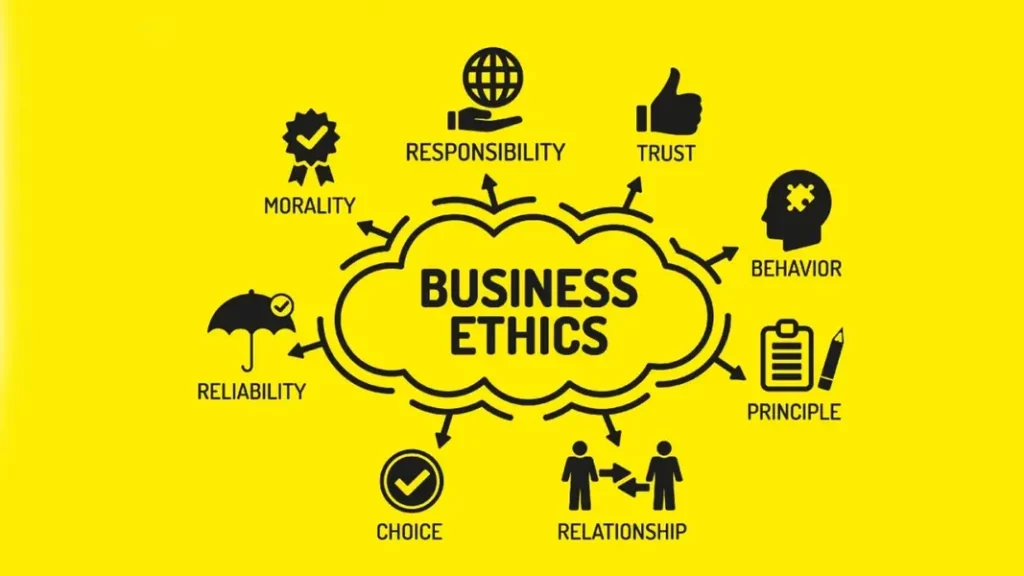Business administration is the process of managing an organization’s resources to achieve its goals and objectives. In a rapidly changing world, the role of ethics in business administration has become increasingly important. Ethics are the principles of right and wrong that guide human behavior. In business administration, ethics are essential to ensure that organizations behave responsibly and are accountable for their actions. In this article, we will discuss the importance of ethics and ethical best practices in business administration.

The Importance of Ethics in Business Administration
Ethics are important in business administration for several reasons. Firstly, ethical behavior ensures that organizations operate in a responsible manner. This means that they are accountable for their actions and are not involved in any activities that are harmful to society or the environment. Secondly, ethical behavior helps to build trust between organizations and their stakeholders, including customers, employees, investors, and regulators. When organizations behave ethically, they are more likely to attract and retain loyal customers and employees. Thirdly, ethical behavior can lead to increased profitability. This is because customers are more likely to do business with organizations that they trust, and employees are more likely to be motivated and productive when they feel that they are working for an ethical organization.
Ethical Best Practices in Business Administration
Ethical best practices are the guidelines that organizations can follow to ensure that they behave in an ethical manner. The following are some of the ethical best practices that organizations can adopt:
- Develop a Code of Ethics
A code of ethics is a written document that outlines the principles and values that guide an organization’s behavior. The code of ethics should be developed with input from all stakeholders, including employees, customers, suppliers, and regulators. The code of ethics should be regularly reviewed and updated to ensure that it remains relevant and effective.
- Train Employees on Ethics
Employees are the frontline representatives of an organization, and they play a critical role in upholding its ethical standards. Therefore, it is essential to provide employees with regular training on ethics. The training should cover the organization’s code of ethics, ethical decision-making, and the consequences of unethical behavior.
- Promote a Speak-Up Culture
Organizations should encourage employees to speak up if they witness any unethical behavior. This can be done by creating a culture of openness and transparency, where employees feel comfortable reporting any concerns without fear of retaliation. The organization should also have a confidential reporting mechanism in place, such as a hotline or an online reporting system.
- Implement Ethical Supply Chain Practices
Organizations should ensure that their supply chain partners also follow ethical practices. This includes ensuring that suppliers adhere to labor and environmental standards and do not engage in any illegal or unethical practices.
- Be Transparent
Organizations should be transparent in their communication with stakeholders. This includes providing accurate and timely information about the organization’s activities, financial performance, and any potential risks or challenges. Transparency helps to build trust and credibility with stakeholders.
- Adhere to Laws and Regulations
Organizations should ensure that they comply with all applicable laws and regulations. This includes labor laws, environmental regulations, and consumer protection laws. Organizations should also have a system in place to monitor and report any violations.
- Engage in Corporate Social Responsibility (CSR)
Corporate social responsibility refers to the voluntary actions that organizations take to address social, environmental, and ethical issues. This includes supporting local communities, reducing the organization’s environmental impact, and promoting diversity and inclusion.

Pay Someone to Do My Homework for Me
Benefits of Ethical Best Practices in Business Administration
Adopting ethical best practices in business administration can provide several benefits to organizations. Firstly, it can help to build a strong reputation for the organization. This can attract new customers and employees, and also help to retain existing ones. Secondly, it can improve the organization’s financial performance. Customers are more likely to do business with organizations that they trust, and this can lead to increased sales and profitability. Ethical behavior can also lead to cost savings by reducing the risk of legal and regulatory penalties, as well as avoiding the costs of repairing a damaged reputation. Thirdly, ethical best practices can improve employee morale and motivation. Employees are more likely to be committed to an organization that they perceive to be ethical and responsible, which can lead to increased productivity and reduced employee turnover.
Conclusion
In conclusion, ethics and ethical best practices are essential in business administration. Organizations that behave ethically are more likely to operate in a responsible manner, build trust with stakeholders, and achieve long-term success. By adopting ethical best practices such as developing a code of ethics, training employees, promoting a speak-up culture, implementing ethical supply chain practices, being transparent, adhering to laws and regulations, and engaging in corporate social responsibility, organizations can build a strong reputation, improve their financial performance, and create a positive work environment for their employees. Therefore, it is important for organizations to prioritize ethics in their business administration practices.
- Role of Ethics in Public Administration Essay Sample
- SAT 1-SAT TASK 3: Healthcare Financing Essay
- Sources of Health Care Financing -An Overview
- C489 Organizational Systems and Quality Leadership
- Organizational Behavior and Leadership C484
Find online help in writing essays, research papers, term papers, reports, movie reviews, annotated bibliographies, speeches/presentations, projects, presentations, dissertation services, theses, research proposals, essay editing, proofreading, Book reviews, article reviews, formatting, personal statements, admission essays, scholarship essays, application papers, among others.


 WRITE MY ESSAY NOW!
WRITE MY ESSAY NOW!